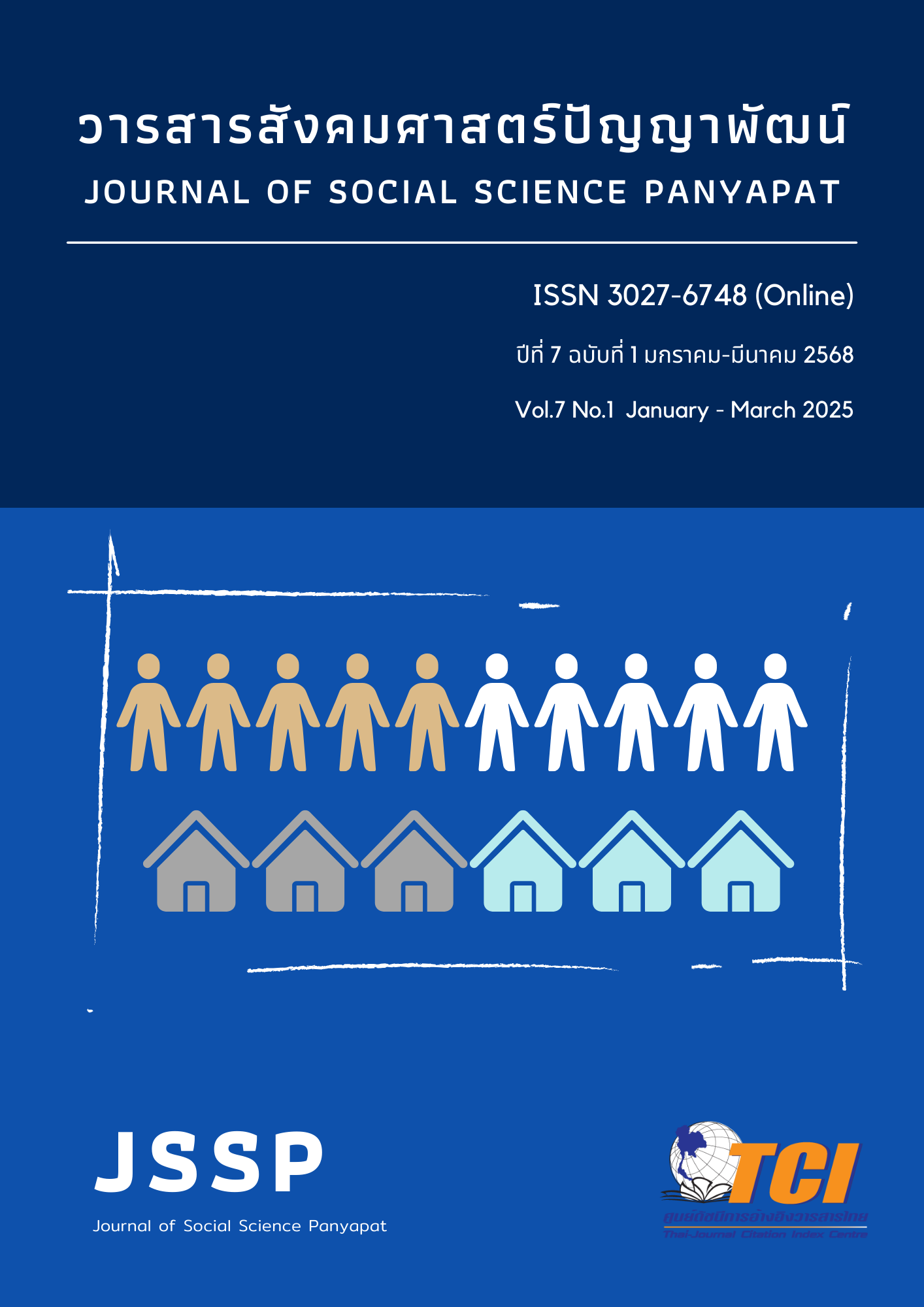The Development of Language Skills in Early Childhood through the “Rookid PhichitPhasa” Activity Set Combined with Storytelling Techniques
Keywords:
Language Skills, Activity Set, Storytelling, Preschool ChildrenAbstract
This research article aims to: (1) develop the “Rookid PhichitPhasa” activity set to achieve an efficiency standard of 80/80, (2) compare the language skills of students before and after using the “Rookid PhichitPhasa” activity set combined with storytelling techniques, and (3) examine the students' satisfaction with the learning experience using this activity set combined with storytelling techniques. The sample group consisted of 25 kindergarten students from Class 3/3 at Ban Nong Chum Saeng School during the second semester of the academic year 2024, selected through stratified random sampling. The research instruments included: (1) a lesson plan, (2) the “Critical Thinking and Language Mastery” activity set, (3) a language skills assessment, and (4) a satisfaction questionnaire. Data were analyzed using a dependent t-test and descriptive statistics, including mean (M), standard deviation (S.D.), and interpretation according to predefined criteria. The results of the study revealed that: 1) the “Rookid PhichitPhasa” activity set achieved an efficiency of 89.14/86.20, surpassing the standard criteria. 2) Students who participated in the learning activities using this activity set combined with storytelling techniques demonstrated significantly higher post-learning language skills, exceeding the 80% standard at the 0.05 level of statistical significance. 3) Overall, students expressed a high level of satisfaction with the learning experience using the “Rookid PhichitPhasa” activity set combined with storytelling techniques.
References
เกษมศรี มหาพฤกษ์พงศ์. (2562). การออกแบบกิจกรรมเพื่อส่งเสริมการเรียนรู้ทางภาษาในเด็กปฐมวัย. วารสารวิชาการ, 31(1), 89-103.
ประภาภรณ์ คำวงศ์. (2564). การใช้นิทานเพื่อส่งเสริมทักษะการสื่อสารของเด็กปฐมวัยที่ใช้ภาษาไทยเป็นภาษาที่สอง. วารสารศึกษาศาสตร์ มหาวิทยาลัยนเรศวร, 23(1), 220-221.
ปริณดา ศรีมุณี และ ภัทริศวร์ ดำเสน. (2562). การพัฒนาทักษะทางภาษาของเด็กปฐมวัยโดยใช้การเล่านิทาน. ใน การประชุมวิชาการระดับชาติและระดับนานาชาติ เบญจมิตรวิชาการ ครั้งที่ 9 28 พฤษภาคม 2562 (น. 1-10). กรุงเทพฯ: มหาวิทยาลัยนอร์ทกรุงเทพ.
ภัทชาณี สาริกบุตร. (2564). การพัฒนาทักษะทางภาษาโดยใช้กิจกรรมการเล่านิทานสำหรับเด็กปฐมวัย โรงเรียนอนุบาลบ้านพลอยภูมิ. วารสารศึกษาศาสตรดุษฎีบัณฑิต มหาวิทยาลัยกรุงเทพธนบุรี, 2(ฉบับพิเศษ), 165-172.
วราภรณ์ สุทธิวงศ์. (2565). ผลการใช้แนวการสอนภาษาธรรมชาติเพื่อเสริมสร้างการพัฒนาทางด้านการฟังและการพูดของเด็กปฐมวัย. (ศึกษาศาสตรมหาบัณฑิต, มหาวิทยาลัยราชธานี).
สุชาดา สังฆมณี. (2563). พัฒนาการเด็กปฐมวัยกับทักษะการใช้ภาษา. วารสารการศึกษาขั้นพื้นฐาน, 23(2), 45-59.
Bandura, A. (1977). Social learning theory. Englewood Cliffs, NJ: Prentice-Hall.
Dweck, C. S. (2015). Growth mindset: How to help your child succeed in school and life. New York: Avery.
Downloads
Published
How to Cite
Issue
Section
License
Copyright (c) 2025 Journal of Social Science Panyapat

This work is licensed under a Creative Commons Attribution-NonCommercial-NoDerivatives 4.0 International License.


